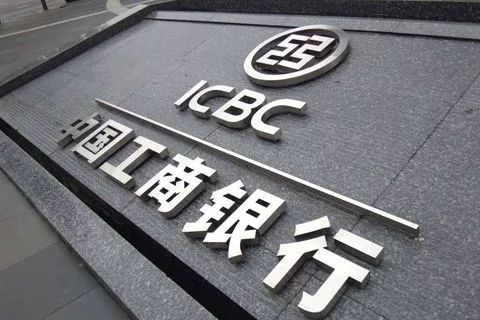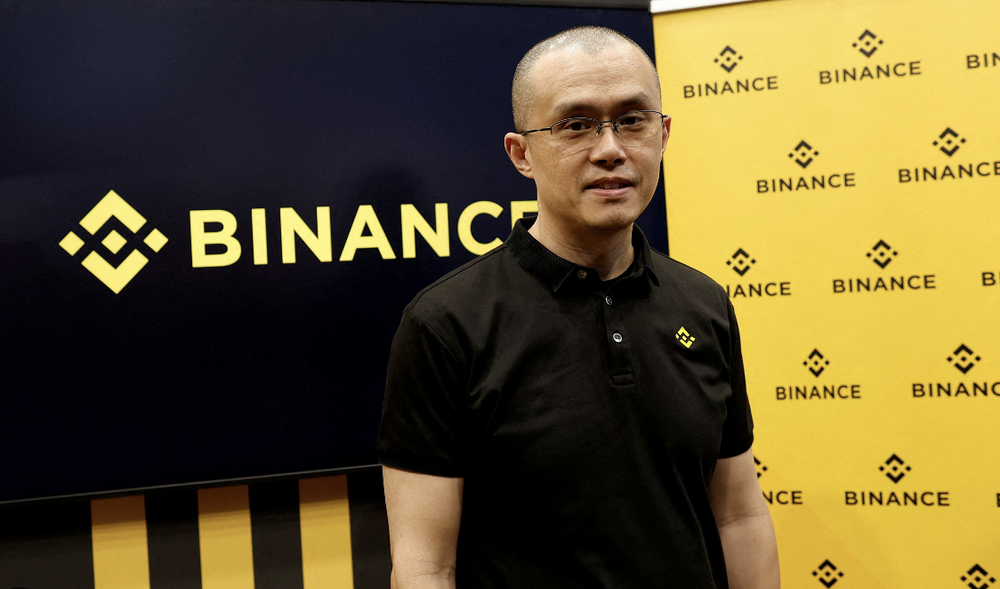The technical route of the central bank's digital currency may have been confirmed, and ICBC shoulders the heavy technical burden
Text: Interchain Pulse · Yuan Shang
Source: Interchain Pulse
Two months later, key officials of the central bank have changed their position on the technical route of DC / EP.
I remember that on September 24th, Yi Gang, President of the People's Bank of China, said that digital currency research has made positive progress and combined with electronic payment; digital currency research and development does not preset a technical route, and considers blockchain or electronic payment.
- Babbitt College × Weizhong Bank Open Course 丨 Talents become the bottleneck of blockchain landing, multi-field exploration technology integration
- Read the Defi popular project Synthetix in one article
- Babbitt Column | The main driver of the evolution of consensus algorithms: humanity
On November 28, Fan Yifei, deputy governor of the People ’s Bank of China, said at the “Eighth China Payment and Clearing Forum” that the central bank ’s legal digital currency DC / EP has basically completed the top-level design, standard formulation, function research and development, and joint testing. One step will be to rationally select the pilot verification area, scenario and service scope, and steadily promote the introduction and application of digital form of fiat currency.
——From a technical perspective, looking at Fan Yifei's remarks, it can be understood that the technical route of the central bank's digital currency DC / EP has been determined. According to the mutual chain pulse understanding, ICBC has undertaken some core technical support tasks.

ICBC IT System
The pace of central bank digital currencies is gradually approaching. The latest information is that on December 9th, Caijing reported that the four major state-owned commercial banks led by the People's Bank of China, including Industry, Agriculture, China, and Construction, and China Telecom, China Telecom, and China Unicom participated in the three major telecom operators. The central bank's legal digital currency pilot project is expected to land in Shenzhen, Suzhou and other places. The pilot project was led by the Central Bank's Currency, Gold and Silver Bureau, and the Digital Currency Research Institute specifically implemented it.
According to informed sources, "Inter-chain Pulse", ICBC undertakes major work in the basic technical framework of the central bank's digital currency.
If you ask bankers, which bank in the universe has the strongest IT system, the answer may be very consistent-ICBC.
As early as 2010, in the "National Core Competitiveness Rankings of Commercial Banks" list published by the "Banker" magazine, the Industrial and Commercial Bank of China scored 0.914 in the "Information Technology" item. It is also the only company in this category A commercial bank with a score above 0.9. Among the major banks in China, ICBC has the earliest use of computer information technology, the largest investment, and the most advanced research.
Data show that the ICBC Software Center was established in 1997, formerly known as the ICBC Software Development Center of the Tangjia ICBC Software Park in Zhuhai. Originally, the head office directly sent personnel to manage, but now it is fully taken over by the Guangdong ICBC Technology Division.
And other banking software centers were set up much later than ICBC. For example, China Merchants Bank established a similar institution in 2002, China Construction Bank established relevant institutions in 2003, and the People's Bank of China in early 2004 established the Beijing Chengnan People's Bank Software Development Base.
Today, ICBC is almost a myth in the industry, knowing that there is a special question: "Is the ICBC's IT system really the best from a technical point of view?" Almost all the respondents gave a positive answer.
Especially in recent years, ICBC's IT system is moving from centralized to distributed, which provides important technical support for central bank digital currencies.
In November, Yao Qian, general manager of Zhongdeng Company and former director of the Central Bank's Digital Currency Research Institute, proposed the technical characteristics of the central bank's digital currency in a signed article:
"Our digital currency prototype system explores the application of blockchain, but does not completely rely on this technology. In design, it utilizes the characteristics of distributed ledgers that cannot be tampered with and cannot be counterfeited to build a blockchain-based CBCC protocol. Rights ledger, which provides query services through the Internet, is equivalent to a network 'currency detector'. This design isolates and protects the core issue registration ledger from the outside world, while taking advantage of the distributed ledger to improve the right confirmation system And data security and credibility. On the other hand, transaction processing is still completed by the issuance registration system using a traditional distributed architecture, and the distributed ledger is only used to provide external query access. The transaction processing subsystem and the query authority Separating the system and adopting different technical routes can effectively avoid the performance bottlenecks in transaction processing of existing distributed ledgers. "
In simple terms, it is that the central bank digital currency borrows the distributed ledger technology of the blockchain to verify the power and so on.
According to the ICBC Annual Report for the first half of 2019, the bank is advancing the construction of the Intelligent Bank Information System (ECOS) project. This project includes: building a secure and controllable big data service cloud system, and becoming the first large commercial bank in the world to successfully transform a big data system from a traditional software and hardware integrated machine to a distributed architecture.

ICBC already has reserves for digital currencies
It is not difficult to understand that, at the end of October, a screenshot of the ICBC digital currency wallet flowed out.
ICBC has more technical reserves in digital wallets. According to the financial report for the first half of 2019, ICBC disclosed that the bank continued to optimize the functions of ICBC e-wallet products and promote the construction of online scenarios such as the Internet industry, government livelihood, membership services, real estate sincerity, salary management, and consumer credit. More than a hundred online platforms such as JD, Tencent, and Xiaomi have launched in-depth cooperation; put into operation functions such as account opening, recharging, cash withdrawal, inquiry, and wealth management of the e-Link II account; build ICBC e-life as the core to connect banks, customers and merchants Consumption finance ecosystem covering clothing, food, housing, transportation, entertainment, learning, and medicine. In terms of bank wallet functions and scenarios, ICBC is also at the forefront.
It is worth noting that Tencent's Tenpay system and Ali's Alipay system, which originally had high calls in the wallet payment field, have not been included in the central bank's digital currency trial.
According to "Finance" December 9, "The Eve of the Birth of Chinese Digital Currency",
"This pilot of the central bank's legal digital currency will go out of the central bank system and enter real service scenarios such as transportation, education, and medical treatment, reaching C-end users, and generating frequent applications. Pilot banks can choose scenario based on their own advantages.
It can be seen that, in terms of application scenarios, it still revolves around the four major lines.
ICBC is well prepared for digital currencies. As early as September 2017, ICBC released its own research report: "Definition of Digital Currency Concepts and Development Prospects, One of the Series of Fintech Research", which pointed out that commercial banks should pay attention to digital currencies:
"For commercial banks, it is necessary to objectively understand the possible impact of digital currency issuance. On the one hand, digital currency based on distributed accounting rules combined with smart contracts can simplify the banking industry's settlement and clearing processes, and reduce institutional operation and management costs On the other hand, the traditional credit currency issuance mechanism of the “Central Central Bank-Commercial Bank” will be impacted, and the possible phenomenon of bank deposit disintermediation and accelerated financial asset conversion are worth our attention. ”
In this report, ICBC proposed to join the ranks of researching digital currency related technologies as early as possible.
"Our bank should pay close attention to the latest innovation trends of the central bank and its domestic and foreign counterparts, and join the ranks of researching digital currency technology as early as possible. Our bank can set up R & D laboratories or cooperate with fintech companies to study different digital currency application scenarios and seize development First move. "
Two years have passed and is about to germinate.
We will continue to update Blocking; if you have any questions or suggestions, please contact us!
Was this article helpful?
93 out of 132 found this helpful
Related articles
- Babbitt Observation | Two Districts in Beijing rush to land in "sandbox supervision", more than 100 banks have entered the field
- A scam worth hundreds of millions of dollars: Why did HEX cause public outrage?
- Beijing's "regulation sandbox" experiment is about to begin, and the road to blockchain compliance begins?
- Article predicts five major impacts of secure multiparty computing (MPC) on the blockchain industry in 2020
- Featured | Some secrets about DAO that you can't see at the developer conference
- Opinion | The open source of hardware wallets does not represent a wallet upgrade, but a major security compromise
- Bakkt plans to launch a set of digital currency products in 2020, similar to Brent crude oil futures contracts






